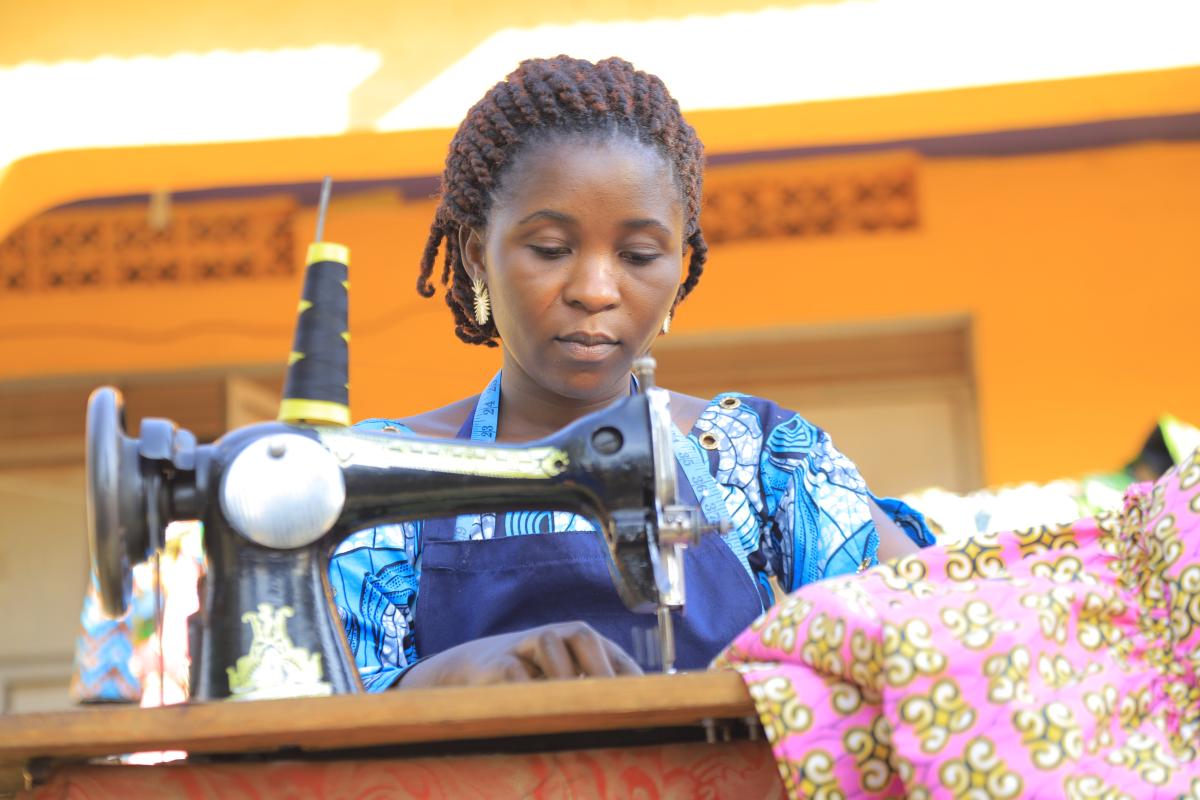Saidath crafts a new life through business and mentorship in Uganda
Saidath Masika is a refugee from the Democratic Republic of Congo (DRC). She lives and works as a tailor in Arua, Uganda.
Arua, has in the recent past seen a significant influx of refugees, primarily from neighboring countries such as South Sudan, DRC and Burundi. The refugee population in Arua often seeks safety and asylum due to conflict, violence, and political instability in their home countries.
Before
Saidath left DRC, she had dropped out of school due to pregnancy. After the
birth of her child, she began learning tailoring but before she could master
the craft, her family was forced to flee to Uganda due to political
instability. Determined not to give up, Saidath began her tailoring business in
Uganda but faced challenges because she lacked vital skills like making men’s
wear such as shirts and trousers.
Saidath’s business took a different turn when
she applied for a tailoring course to acquire the skills she was lacking. After
the intensive training, Saidath who had previously been living in Koboko,
decided to move her business to Arua, a more vibrant and busy town, with the
hope of getting customers.
Many
refugees in Arua freely engage in entrepreneurial activities, such as small
businesses, agriculture, and handicrafts, contributing to the local economy and
their own self-reliance. Non-governmental organizations (NGOs), and local
authorities play a crucial role in providing assistance, protection, and
support to refugees in Arua and surrounding areas.
“Initially,
it was difficult due to a small base of clients, but now, life is better because
over time, I have gained loyal customers.”
Despite the
initial setbacks, Saidath pushed on and today, she has no regrets. She is
happily earning while doing what she loves to do.
“I encourage
other young females like me to have courage, learn something so that they can
have some money to survive.”
Her business
has helped her chip in to buy school requirements like uniforms for her
children, while their father pays their school fees. She is also able to buy
food for them. Sometimes she extends help to her siblings by buying them food
and clothing.
Her biggest
challenge in her business is with difficult customers who change their minds
after tailoring exactly what they told her. Sidath gets frustrated but because
she wants to retain them, she usually goes over the design with them again and
starts tailoring afresh.
Before she
shifted her business to Arua, she was working in Koboko, where she trained 4
girls from the host community, 3 of whom have since started their own tailoring
businesses. She is currently training 6 girls who she charges 300,000/= each
for 6 months.
Through her
mentorship, she not only imparts skills but fosters a sense of unity and
collaboration among her diverse students who include both Ugandans and refugees.
Laatste nieuws van dit project
Geen nieuws

